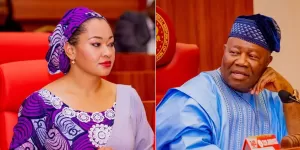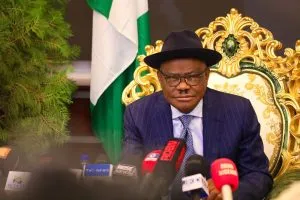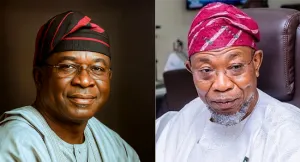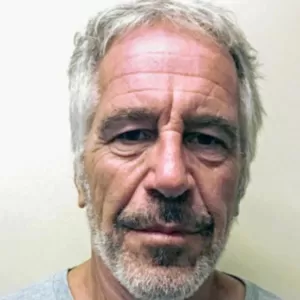ADC Members File Lawsuit Challenging Legality of Interim Executive Appointments

Abuja, Nigeria – July 8, 2025 – Three members of the African Democratic Congress (ADC), Adeyemi Emmanuel, Ayodeji Victor Tolu, and Haruna Ismaila, have initiated legal action at the Federal High Court in Abuja, challenging the legality of the recent appointments of interim national executives within the party. The lawsuit, filed on July 4, 2025, and marked FHC/ABJ/CS/1328/2025, targets the positions of Senator David Mark as Interim National Chairman, Rauf Aregbesola as Interim National Secretary, and Bolaji Abdullahi as Interim National Publicity Secretary, asserting that these appointments violate the ADC’s constitution and a standing court judgment.
The plaintiffs argue that the ADC, as an established political party, has no provisions in its constitution for the appointment of interim leadership. They contend that the appointments were made through an illegal meeting convened by the party’s former national chairman, Ralph Nwosu, whose tenure had expired, thereby stripping him of the authority to call such meetings or appoint interim leaders. According to the suit, Nwosu’s actions contravene both the party’s constitutional framework and a prior court ruling that governs its operations.
The lawsuit seeks several judicial remedies, including a declaration that the appointments of Mark, Aregbesola, and Abdullahi are unlawful and unconstitutional. The plaintiffs also request that the court nullify any actions, decisions, or directives issued by these interim executives. Furthermore, they are urging the court to issue an order restraining the Independent National Electoral Commission (INEC) from recognizing or dealing with the interim leadership in any official capacity.
The legal challenge comes at a critical time for the ADC, which has recently been adopted as a coalition platform by prominent opposition figures, including former Vice President Atiku Abubakar, ahead of the 2027 Nigerian presidential election. The party’s move to appoint high-profile interim leaders was seen as a strategic effort to bolster its position within the opposition coalition. However, the lawsuit highlights internal dissent and raises questions about the legitimacy of the party’s leadership structure as it prepares for the upcoming electoral cycle.
The plaintiffs’ filing underscores broader concerns about adherence to due process and constitutional governance within the ADC. They argue that the imposition of an interim leadership undermines the democratic principles enshrined in the party’s constitution and risks destabilizing its operations. The outcome of the lawsuit could have significant implications for the ADC’s unity and its ability to present a cohesive front in the 2027 elections.
As of now, no hearing date has been scheduled for the case, but political analysts are closely monitoring the developments, given the ADC’s growing prominence in Nigeria’s political landscape. The lawsuit not only challenges the legality of the interim appointments but also highlights the broader tensions within opposition parties as they navigate coalition-building and leadership transitions in preparation for the next general election.
The ADC has yet to issue an official statement in response to the lawsuit, and representatives of the interim leadership, including Senator David Mark, have not publicly commented on the matter. Meanwhile, INEC has maintained its neutrality, stating that it will await the court’s ruling before taking any action regarding the recognition of the ADC’s leadership.
This legal battle is likely to intensify debates about internal party governance and the role of judicial oversight in Nigeria’s political party system. As the case progresses, it will serve as a critical test of the ADC’s ability to resolve its internal conflicts and maintain its momentum as a viable opposition platform.







